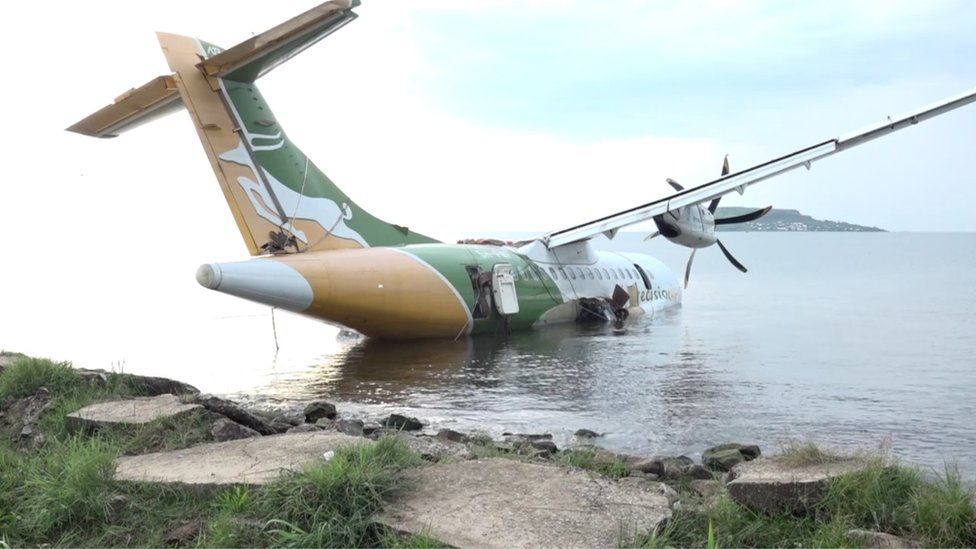At this year’s COP27 UN climate change summit, money will feature high on the agenda and is sure to be a sticking point in negotiations.
Over the last 12 months the developing world has faced severe climate-related crises – from flooding in Pakistan to drought in East Africa.
They want developed nations like the US, UK and those of the EU to pay for the “loss and damage” they’ve suffered.
They also want help to make the switch to cleaner energy and infrastructure. So, will they get the finance?
What do countries want money for?
Money for climate action broadly falls into three buckets. The first is for mitigation – this is money to help developing nations move away from fossil fuels and other polluting activities.
Many countries still have coal power stations that are yet to reach the end of their lives. They need support to build clean energy infrastructure to replace them, such as solar farms.
The second type of funding is for adaptation. This is money that goes toward helping developing nations prepare for the worst effects of climate change.
These impacts vary depending where in the world the country is located but they may include:
- building stronger flood defences
- relocating populations at risk
- developing storm proof housing
- distributing crops that are more resilient to dry spells
All countries are agreed that funding needs to go towards mitigation and adaptation.
But the third type of finance remains highly controversial. This is known as “loss and damage” finance. This money would go towards helping developing countries recover from the impacts of climate change they are already suffering.
These nations do already receive money for disasters via humanitarian aid – but it can vary from year to year.
Developing nations want guaranteed compensation from developed countries – who they say are historically responsible for climate change.
However, developed countries consider this a red line – and say that to agree would be admitting liability for the disasters.
Will we get an agreement on reparations for loss and damage?
At last year’s COP26 conference, loss and damage did not even feature on the agenda.
Following a series of smaller negotiations this year though, it will now be discussed in Sharm el-Sheikh.
It is unlikely that there will be any agreement on a financial figure but nations could come forward with specific details, such as how the money would be paid.
Some climate activists have used the term “reparations” to describe the payments for loss and damage.
In this context, reparations generally refer to compensation paid by rich countries to poorer ones to make up for their historically greater contributions to global warming and its impacts.
Mitzi Jonelle Tan, the international spokesperson of Youth Advocates for Climate Action Philippines, told the BBC richer countries had a moral duty to help those most affected by climate change.
“They caused the climate crisis and so they need to give reparations for the loss and damage we have already experienced and so we can adapt and mitigate,” she said.
But framing the payments as reparations has proved politically contentious, with developed countries wary of accepting liability for climate change on these terms.
Rishi Sunak’s spokesperson has said the prime minister will not be discussing climate reparations at COP27, pushing back suggestions he was open to the idea.
The spokesperson said that “neither reparations nor liability is what’s being discussed at COP27, it’s about working together to support climate-vulnerable countries”.
The UK is tripling funding for climate adaptation from £500m to £1.5bn in 2025, the spokesman said, while Mr Sunak pledged £65m to the Nature, People and Climate Investment Fund, which supports forest communities.
What money has been given so far?
In 2009, richer countries agreed to provide $100bn (£88bn) a year to developing nations for climate action by the end of 2020. By the end of that year the total had only reached $83.3bn (£73.21) but the goal is expected to be reached in 2023.
The majority, 82%, of this finance came from the public purse whilst the remainder was raised from the private sector, according to the OECD.
But analysis, commissioned by the UN, finds that the private sector could deliver 70% of total investments needed to meet climate commitments.
Following this, last year the Glasgow Financial Alliance for Net Zero (GFANZ) was launched. Now a coalition of more than 550 private firms have committed to directing $130 trillion in assets towards this agenda.
Are developing countries receiving enough money?
Not only are the existing promises of climate finance not currently being met, but developing countries argue that these targets are too low.
At last year’s climate summit in Glasgow, the G77+ China alliance of developing countries called on richer nations to mobilise at least $1.3 trillion (£1.14 trillion) by 2030. They argued that this should be split equally between reducing emissions and preparing for climate change.
Currently, only 34% of climate finance goes towards helping developing countries adapt to climate change, according to the OECD’s latest figures.
Also the majority of the public funding, 71%, is still given in the form of loans rather than direct grants to countries – which can increase the debt burden in poorer nations.
Nafkote Dabi, Oxfam International Climate Policy lead has called this “profoundly unfair”.
He said: “Instead of supporting countries that are facing worsening droughts, cyclones and flooding, rich countries are crippling their ability to cope with the next shock and deepening their poverty.”






.jpg)



